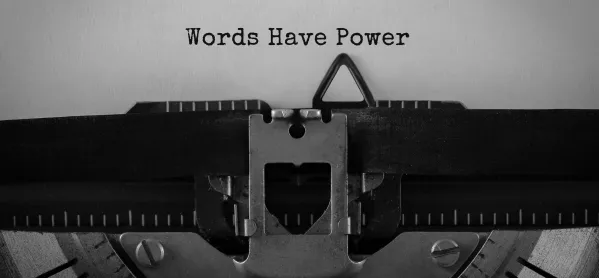- Home
- Why you should never say you are empowering students
Why you should never say you are empowering students

I was fortunate enough to attend the Festival of Learning celebration for adult learners earlier on in the week. The reception took place in the Houses of Parliament. It was on the day when there was yet another very important and equally confusing Brexit vote and the whole lot of ‘em were in the building.
I felt a lot of things while trotting through those hallowed halls. There’s an almost palpable feeling of history-come-to-life about the place. The coldness, the hard floors and the wooden vaulted ceilings of the Great Hall instantly conjure Queen Elizabeth 1 - I can see her determinedly wafting through the room about to do something bolshy, brave and implicitly feminist. From her, my mind then turns towards Guy Fawkes. I envisage him sick to death of the whole bloody thing, lurking in a cupboard, watching the goings on, quill out, jotting it all down.
This building is still the centre of this country’s power, where decisions are made that rattle through the country and the world. It’s an exciting place yet it also seems like the home of a load of archaic theatre. Tradition for the sake of it.
News: Alison Wolf: Post-16 alternative to maths GCSE needed
Opinion: ‘Teachers, bin the admin and take your time back’
FE podcast: Monitoring visits and the FE commissioner
I unexpectedly witnessed the procession into chambers of the speaker of the House. That was a thrilling, yet stone-cold crackers affair. We all had to stand still, remain silent, then out of nowhere someone boomed “Strangers! Hats off!” All the heavily tooled-up coppers de-helmeted and I removed my glasses from atop my hairdo, just to be part of it.
Mr Bercow then glided down the hall in all his robes, surrounded by the equivalent of a load of male bridesmaids, one of them carrying a giant golden ball on a stick.
Absolutely surreal. A right old head-scratcher, I can tell you. That whole ceremonial display of power might have washed in medieval times, but seems so far removed from the impact of decisions made today that it’s almost laughable.
We have to be so careful about the perception of power: who has it, who deserves it, who gives it.
I was at a meeting about inclusion recently, where I was abruptly pulled up about my use of the term “empowerment”. I had suggested that the work we do in the context of encouraging young people with learning difficulties and disabilities to be self-advocates was “empowering”.
The air in the room shifted as my colleagues looked at each other, and with pursed lips, told me I was wrong. Though I don’t know what hackles are, I know mine were raised. I don’t like being told I’m wrong. Who does?
Empowering students (or not)
This is especially true when we’re talking about the implications of language. A change of linguistic perception is both close to my heart and when forced upon me, really friggin’ irritating. Pompously, I’d like to assume my existing view is correct. After all, words is what I do. I’m an English teacher, innit. That said, I love being told I’m wrong when it turns out I am totally wrong. It’s learning the hard way, but it’s exciting.
I was told in no uncertain terms that empowering someone would suggest that the power was ours to give and theirs to receive and what we do as teachers is to support people towards self-empowerment.
I couldn’t argue and I’ll be honest, that shift in understanding of the term messed with my brain. I’d been chucking this word “empower” into aspirational dialogue around the work of practitioners for ages. “We are empowering people”, I’d proudly declare.
The more I considered their argument about the ownership of power, the giving and receiving of it, the more I realised they were totally right. And it was a linguistic epiphany.
Since that conversation I’ve noticed this “empower” word cropping up everywhere. We use it all the time in an educational context. And since my own shift in thought around what it implies about power - who perceives themselves as the bestower of it and who is perceived as the grateful recipient - it’s all of a sudden got right on my nerves.
Honestly, every time I hear it, “We are empowering you...” I’ve all on not to shout, “Thank you Almighty One, but you can shove your second-hand power up your chuff. It’s not yours to give.”
It’s pedantic but it matters. Power is a precarious issue. Everyone has their own to use in whatever way they see fit. We only have to look at the events inside the House of Commons to see just how the use and abuse of power plays out.
Keep reading for just £1 per month
You've reached your limit of free articles this month. Subscribe for £1 per month for three months and get:
- Unlimited access to all Tes magazine content
- Exclusive subscriber-only stories
- Award-winning email newsletters



